Review: LITTLE BY LITTLE, CUT TOO SHORT, & BROADWAY BOUND Bring Some Pleasures To 54 Below
3 Nights at "Broadway's Living Room" on West 54 Street.
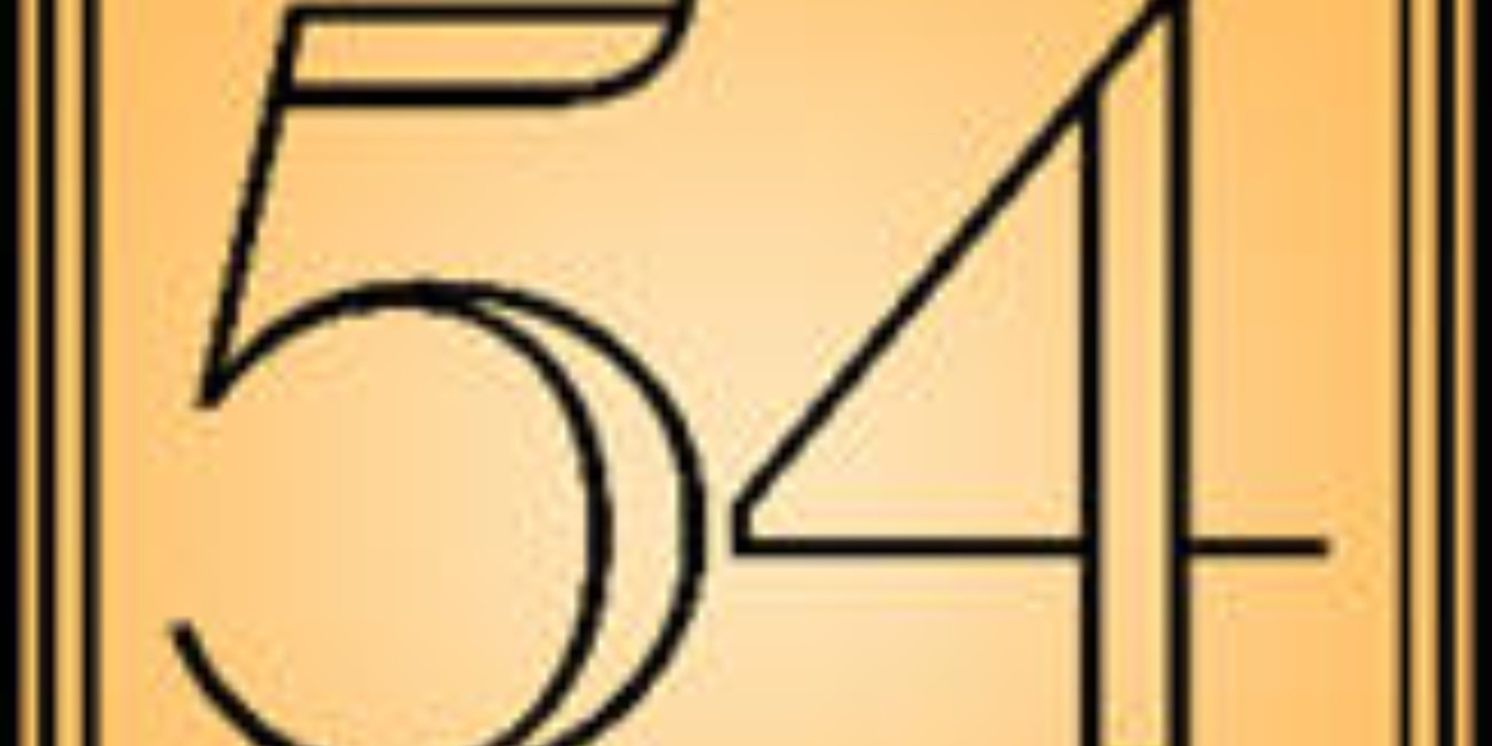
Three cheers for 54 Below’s dedication to turning the spotlight on shows from the world of musical theatre that we don’t otherwise often see, hear songs from, or even hear about. Specifically, three cheers for three recent presentations that had that agenda. Three cheers for the audiences who pack the room to prove that there’s ongoing interest in going to celebrations of productions beyond those that go on and on – running on Broadway for multiple years, and then revived (and revived again). Of course, the nightclub dubbed “Broadway’s Living Room” is also living proof that folks known to prefer the most well-known show tunes will find plenty of that comfort food to feast on, too: Witness the also-warmly-welcomed ongoing series called Broadway’s Greatest Hits (coming up on October 21st) or another night of Sondheim (on the 29th). Let me tell you about three of the nights I spent at 54 Below – one was a “concert version” cast reunion of a single musical about friendship and love. Another gave some love to those Broadway shows from this century whose runs were arguably Cut Too Short, and then we cut to the ones that thought they were Broadway Bound: The Musicals That Never Made It to Broadway.
(1).png?format=auto&width=1400) My sentimental side and sense of theatre history revisited make me attracted to events that bring actors back to roles they created — for a celebration and/or redux - the more years in between, the more emotional. The odds against getting a production’s whole cast back are big, but Little by Little had a big advantage in that its cast was little: only three performers. And so they were all back in the roles and in fine form, indeed, after almost a quarter of a century. They are Christiane Noll, Liz Larsen, and Darrin Baker. Also back as musical director/pianist: Vincent Trovato. Little by Little had landed at the wonderful York Theatre off-Broadway back in 1999. Directed then – and for the concert – by Annette Jolles, its composer is Brad Ross and the lyrics are co-credited to Ellen Greenfield and Hal Hackady. (He passed away in 2015; the two women are co-credited for the book.) The characters are three people who were friends from childhood, the bonds becoming tested, twisted, and torn when (hetero)sexual attraction comes into the picture. The morphing relationships are shown in a series of songs that follow the trio from youth to hormone-bustling teen years to coupling, with communication and commitment issues, emotional ups and downs with the accompanying doubts, denials, deceptions, and dramas. Early on, they are dealing with feeling emotions and feeling… um, other things … with furtive touching when allegedly just reaching for shared “Popcorn” at the movies. With the reprised title song linking episodes, they sing through their thwarted and expressed lust, mistrust, falling in love, fallings-out,
My sentimental side and sense of theatre history revisited make me attracted to events that bring actors back to roles they created — for a celebration and/or redux - the more years in between, the more emotional. The odds against getting a production’s whole cast back are big, but Little by Little had a big advantage in that its cast was little: only three performers. And so they were all back in the roles and in fine form, indeed, after almost a quarter of a century. They are Christiane Noll, Liz Larsen, and Darrin Baker. Also back as musical director/pianist: Vincent Trovato. Little by Little had landed at the wonderful York Theatre off-Broadway back in 1999. Directed then – and for the concert – by Annette Jolles, its composer is Brad Ross and the lyrics are co-credited to Ellen Greenfield and Hal Hackady. (He passed away in 2015; the two women are co-credited for the book.) The characters are three people who were friends from childhood, the bonds becoming tested, twisted, and torn when (hetero)sexual attraction comes into the picture. The morphing relationships are shown in a series of songs that follow the trio from youth to hormone-bustling teen years to coupling, with communication and commitment issues, emotional ups and downs with the accompanying doubts, denials, deceptions, and dramas. Early on, they are dealing with feeling emotions and feeling… um, other things … with furtive touching when allegedly just reaching for shared “Popcorn” at the movies. With the reprised title song linking episodes, they sing through their thwarted and expressed lust, mistrust, falling in love, fallings-out, 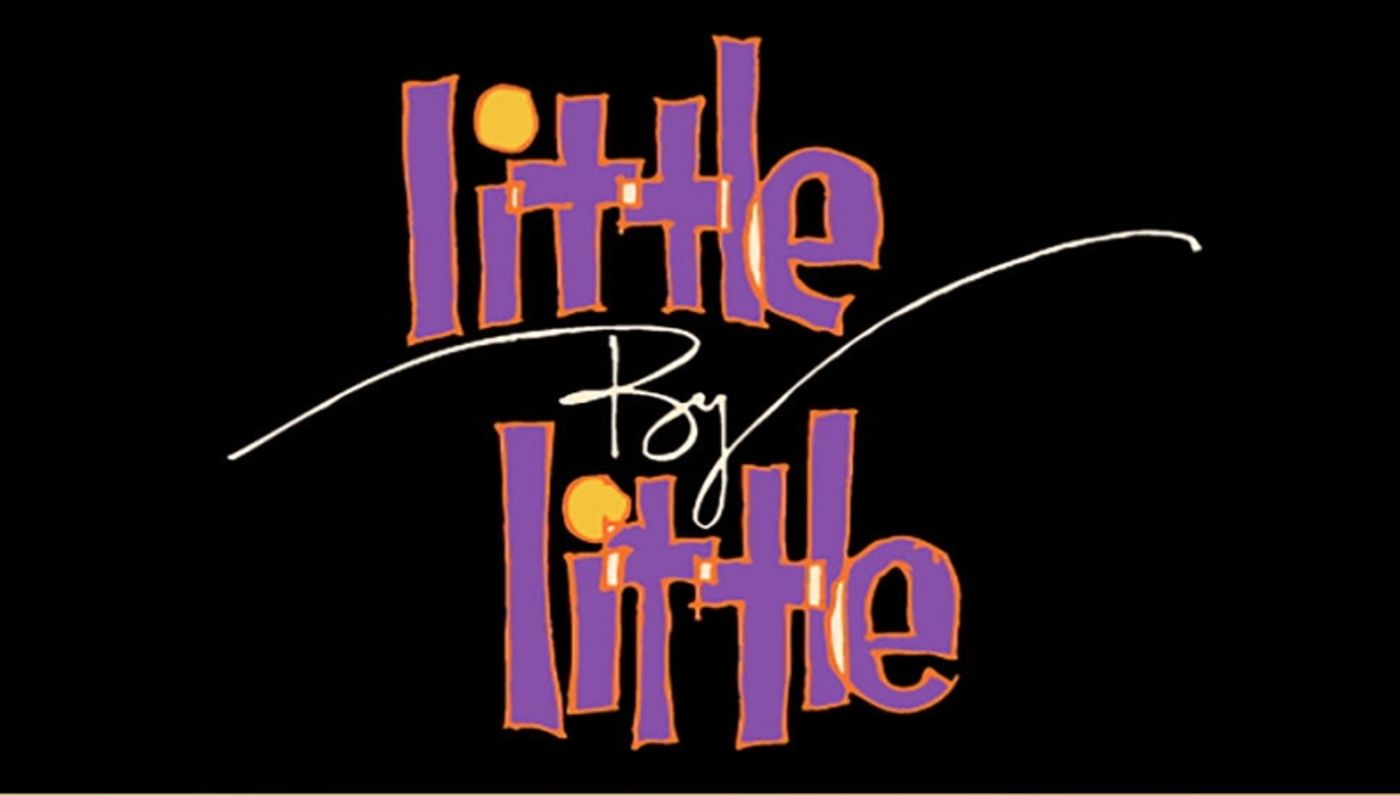 stressing and second-guessing, confessing and messing up. Any potential for gripping gravitas is leavened by a kind of sweet comic tone that seems to strive for “cute.” Being relatable is debatable; your mileage may vary.
stressing and second-guessing, confessing and messing up. Any potential for gripping gravitas is leavened by a kind of sweet comic tone that seems to strive for “cute.” Being relatable is debatable; your mileage may vary.
This concert version dutifully gave us the chapter-by-chapter/song-by-song plot as we, the audience, got to “know” the characters little by little. But it’s a little bit difficult to be really pulled in, beyond appreciating the skills of cast and songwriters (likable tune, clever rhyme, nailed moment, common experience) when three people are standing in front of music stands and turning page after page, on stage, as their eyes gaze and glance at what’s there when they weren’t able to look at each other. Or us. Or move much. So could we be moved much? I guess it would be too much to expect just three people to memorize a full set of songs (in this case, a déjà vu re-do) for a one-night event. (And some of those songs are really packed with words.) Alas, with the club’s usual schedule of starting an event at 7 PM and another show scheduled afterward, the must-be budgeted time meant a decision to use it to do all those songs from the original score, rather than devoting any precious minutes to the musical’s history, reflections, or perspectives, from the cast or the creatives who were in the house. However, I was glad for the opportunity to see these talented folks in person returning to this piece. Little by little, they won me over.
Cut Too Short, subtitled 54 Below Sings Broadway Shows of the 21st Century That Deserved Better presented its case with some convincing evidence. 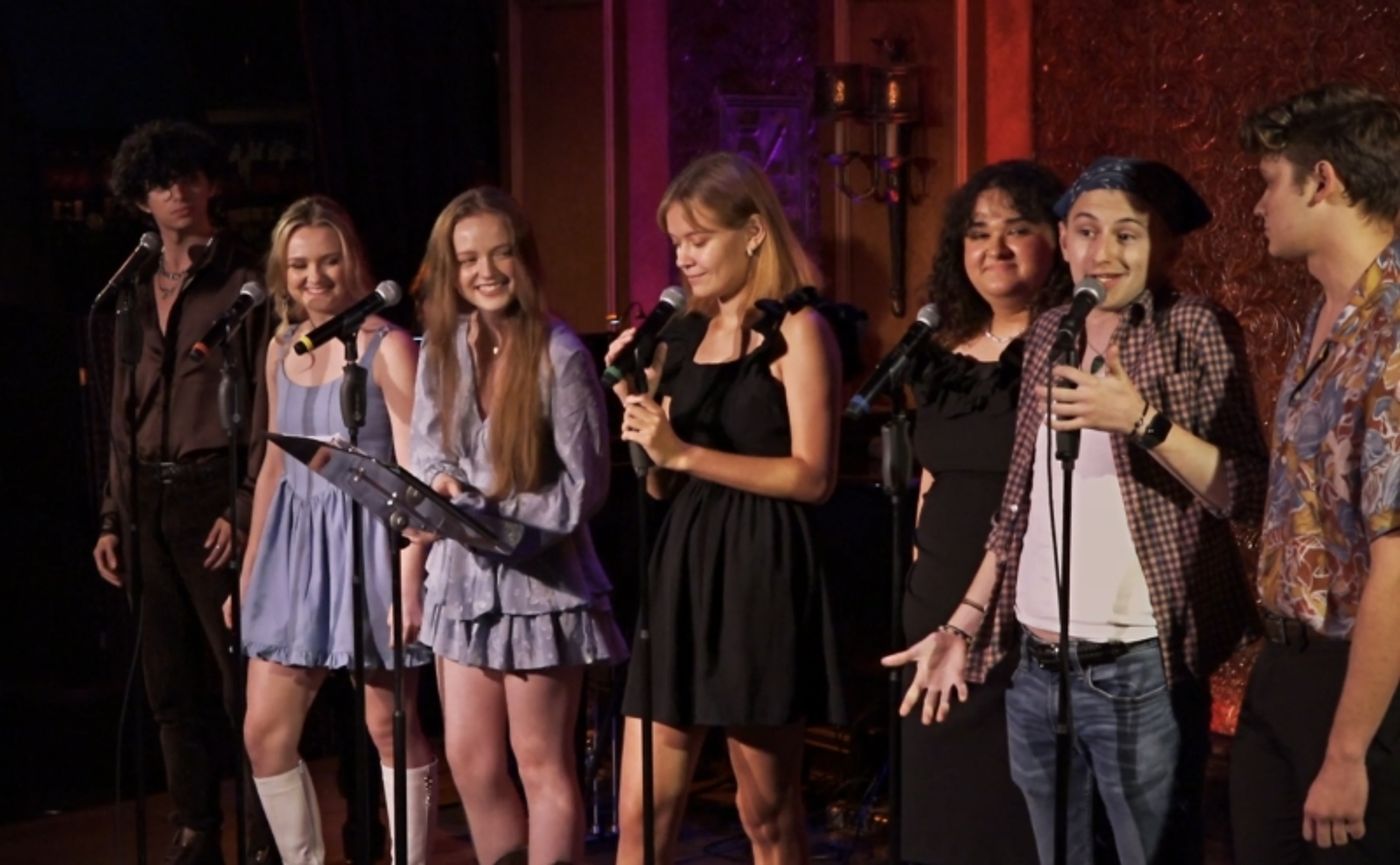 Short runs don’t mean scores are short on quality or that the end of a Broadway engagement is the end of the line. Case in point: the most-sampled example of the night, Bonnie and Clyde, with music by Frank Wildhorn and Don Black, came to the Great White Way as the year 2011 was winding down, beginning previews the first week of November, but closing up shop the night before New Year’s Eve. However, it’s been mounted in a dozen other countries and has done more than O.K. in the U.K., produced recently in the West End, followed by a tour that goes into next year. Cut Too Short was certainly not short on youthful energy and strong voices, some of whom are alumni of Pace University. The company consisted of Kianna Healy (director), McKenna Logan (producer) Andrew Maroney, Erin Rose Doyle, Oscar Williams, Summer Ray Mayes, Noah Sucato, with the very impressive, on-the-ball live wire Joshua Turchin as musical director at the piano chiming in vocally and vivaciously; the multi-tasker has also been a songwriter, actor, etc., etc. and radiates joy. (Photo below: Joshua Turchin at piano with singer Erin Rose Doyle; you might have seen her on Broadway as the girl who's murdered in Parade)
Short runs don’t mean scores are short on quality or that the end of a Broadway engagement is the end of the line. Case in point: the most-sampled example of the night, Bonnie and Clyde, with music by Frank Wildhorn and Don Black, came to the Great White Way as the year 2011 was winding down, beginning previews the first week of November, but closing up shop the night before New Year’s Eve. However, it’s been mounted in a dozen other countries and has done more than O.K. in the U.K., produced recently in the West End, followed by a tour that goes into next year. Cut Too Short was certainly not short on youthful energy and strong voices, some of whom are alumni of Pace University. The company consisted of Kianna Healy (director), McKenna Logan (producer) Andrew Maroney, Erin Rose Doyle, Oscar Williams, Summer Ray Mayes, Noah Sucato, with the very impressive, on-the-ball live wire Joshua Turchin as musical director at the piano chiming in vocally and vivaciously; the multi-tasker has also been a songwriter, actor, etc., etc. and radiates joy. (Photo below: Joshua Turchin at piano with singer Erin Rose Doyle; you might have seen her on Broadway as the girl who's murdered in Parade)
Musicals represented included those with stories about people close to their age, give or take a few years: The Prom, Mean Girls, The Lightning Thief, and Legally Blonde. Most of the songs selected were decidedly locked into the characters and situations of the shows they come from. So, the performers pretty much sang them as if they were playing the roles, not “as themselves” the way a cabaret performer might when borrowing show tunes that can be more adaptable/universal. Audience members who aren’t clued-in musical theatre followers would have benefited from some brief spoken set-ups to have more context, especially with the less-familiar musicals or their source material. There wasn’t much of that, so some numbers might have the effect we feel when channel-hopping through TV, landing on a program in the middle when we’re not sure who’s who and what’s what in the plot. Fortunately, some songs stand up better to the stand-alone treatment.
Watching the first group number, a few things were clear: there was talent for sure; some people were dressed up and some dressed down (Was this meant to be costumes for their solos?, I wondered); and their stage presence in the group varied to the point of being distracting. To elaborate on the last disconcerting point: one performer looked deer-in-the-headlights dazed; one appeared to be watching the show instead of being in it; and, most vexing — because it continued later — one was so overly animated and reactive to everything as to steal focus. With more experience, hopefully, these actions and distractions will be noted and taken care of. Another turn-off, not exclusive to this presentation, is the general lack of respectful acknowledgment of applause. No, we don’t need a bow or even a murmured/mouthed “thank you” at the conclusion of each song, and a sudden grin can break the mood of a serious piece. But showing effusive appreciation and pleasure only to one’s duet partner or exiting seemingly self-satisfied, as if walking on a cloud, looking anywhere but at the crowd, sends the message that a performer takes the paying customers’ clapping and attention for granted. I’m not saying that’s definitely the actual mindset — however, that’s how it can come across.
But there was a lot to enjoy, especially for fans of big-voice singing and emotional intensity. Oscar Williams (pictured below) is a compelling presence, with definite charisma, and seemed to be especially committed to the emotions at hand. 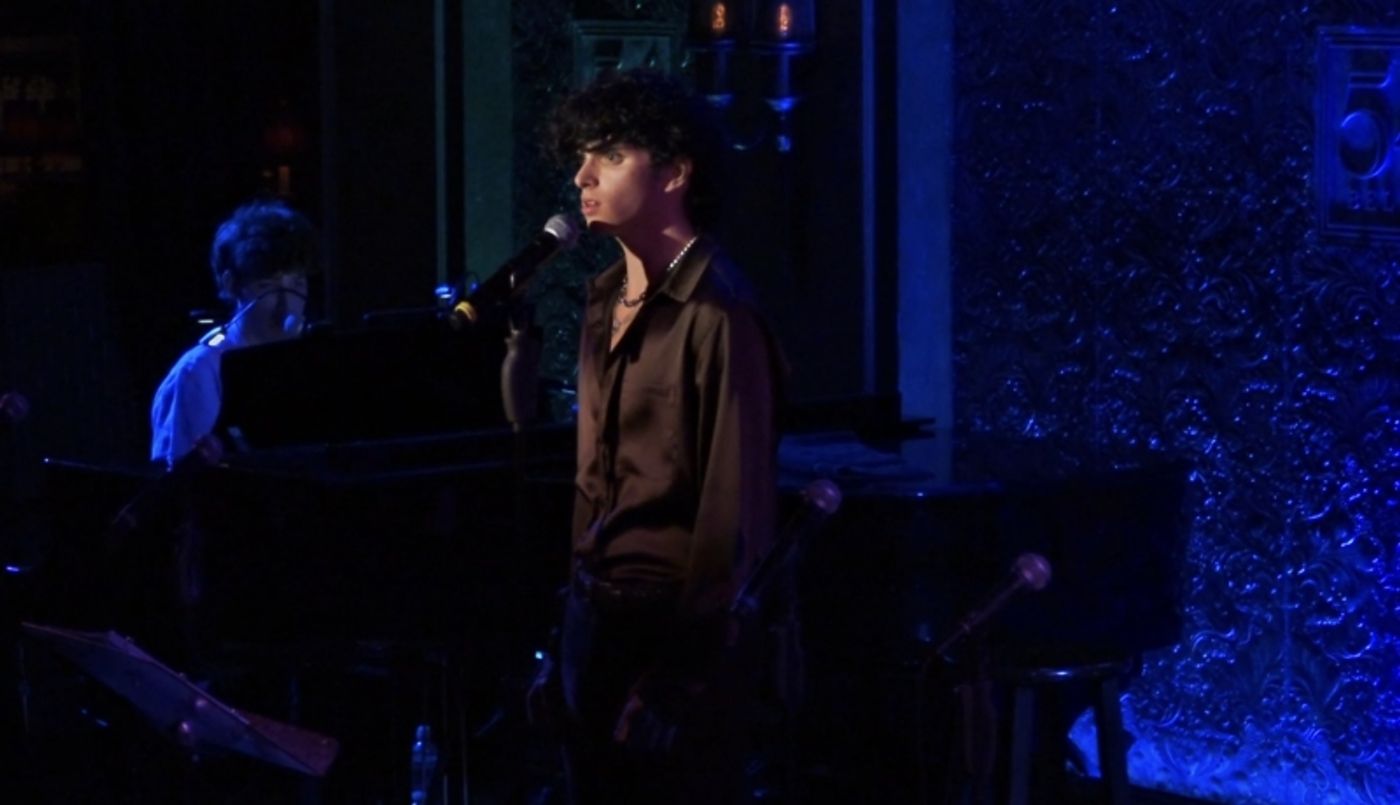 McKenna Logan was effective singing “Times Are Hard for Dreamers” from Amélie, engaging also in the way she described being enraptured by this musical and wanting to see it again and again. Seeing as how Cut Too Short allowed championing material with fervent but smaller fan clubs, “Nine People’s Favorite Thing” from [title of show] was a fitting finale from these folks and felt authentic.
McKenna Logan was effective singing “Times Are Hard for Dreamers” from Amélie, engaging also in the way she described being enraptured by this musical and wanting to see it again and again. Seeing as how Cut Too Short allowed championing material with fervent but smaller fan clubs, “Nine People’s Favorite Thing” from [title of show] was a fitting finale from these folks and felt authentic.
Moving on to the very satisfying evening of the smartly curated Broadway Bound: The Musicals That Never Made It to Broadway, there was much material to love while lamenting the fates of shows that were finished before they got to the finish line. Some projects had died on the vine, some died after varying amounts of success or distress out of town, and some scores had songs related to dying. Those death-conscious numbers were all kinds of compelling. Lori Tann Chinn recalled her time in Half Time as she reprised “The Waters Rise” with, well, rising drama. With Harvey Schmidt’s music, Tom Jones’s ”Goodbye, World” lyric for the adaptation of the classic play Our Town cannibalized much of the monologue 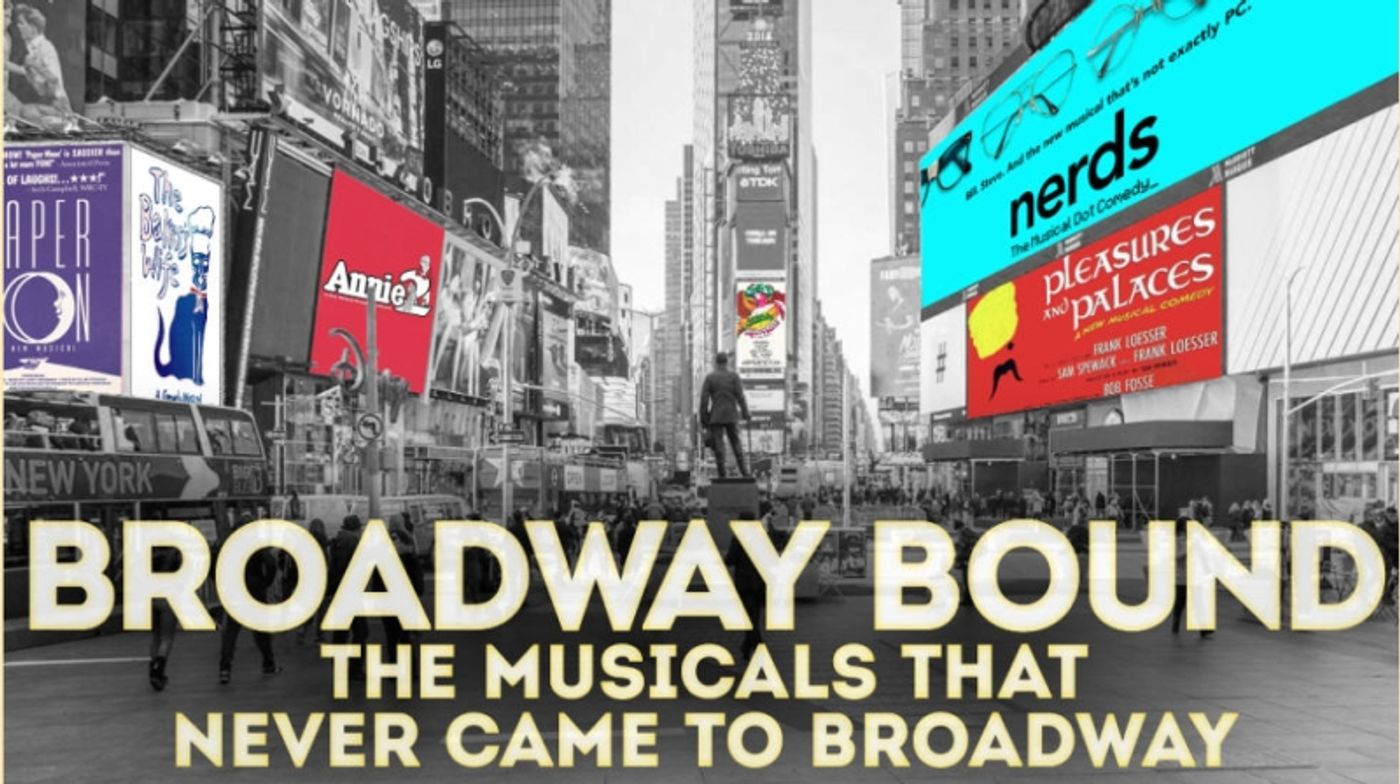 Thornton Wilder wrote for its moment of realizations. Allison Bellinkoff pulled it off as she tore into this tear-jerker. In a collaboration with composer Joseph Thalken, another Jones lyric came up, too, from the score of Harold and Maude, as its once-upon-a-time Harold, a glowing Eric Millegan, revisited the character who loves to fake his own death, as he blithely sang of “The Real Thing.” Music director Michael Lavine gamely filled in for the absentee duet partner to sing the Maude role.
Thornton Wilder wrote for its moment of realizations. Allison Bellinkoff pulled it off as she tore into this tear-jerker. In a collaboration with composer Joseph Thalken, another Jones lyric came up, too, from the score of Harold and Maude, as its once-upon-a-time Harold, a glowing Eric Millegan, revisited the character who loves to fake his own death, as he blithely sang of “The Real Thing.” Music director Michael Lavine gamely filled in for the absentee duet partner to sing the Maude role.
Speaking of that key participant at the keyboard, he was full of life in a quite-differently-toned turn with “I Know It’s True” from the once seemingly Broadway-bound Bonanza Bound by Saul Chaplin, Betty Comden, and Adolph Green (rhymes with “Lavine,” who was compatible in other ways, too, with Adolph, with whom he’d been friends; he offered some fond memories of that). He also talked about sharing time with Sheldon Harnick after he and Christine Pedi ebulliently shared the life-affirming title song of A Wonderful Life (music by Joe Raposo). Contrastingly, a deliciously sarcastic attitude colors the wishes for an ideal kind of existence in “I Want a Life,” brought Rachel Dratch and John Cariani revisiting their time in Minsky’s (Charles Strouse/ Susan Birkenhead) for a comedy home run. The score of Paper Moon (Larry Grossman/ Ellen Fitzhugh) was represented twice, with Michele Ragusa handily handling “I Do What I Can with What I Got” (what she’s got is spunk) and a very ingratiating duet by John Bolton and teen-ager Lena Josephine Marano sparkling on the advantages of being an “Entrepreneur.”
I began this column by giving three cheers for three shows. Let me also give a couple more sets of three cheers for three especially affecting performances in the Broadway Bound night bound to touch the heart. Kevin Dolan was disarmingly sincere in his infatuation with “Alice”; he and this song from the well-worth-unearthing intended musical treatment of the TV perennial The Honeymooners (Alan Menken/ Howard Ashman) were a hit this night. Eric Michael Gillett was masterful and moving with Kander & Ebb’s “At the Rialto” from their musicalization of The Skin of Our Teeth. (He’d been in the cast.) Perhaps oddly timely but definitely impactful, veteran man of the theatre Richard Maltby, Jr. brought along his own lyric to sing “America Will Break Your Heart” (from Waterfall, music by David Shire). And three cheers for the three people who put the presentation together: director Robert Schneider and good-natured on-stage co-hosts Rob W. Schneider, and Charles Kirsch, with concise introductions that eschewed the treacherous traps of snark and gossip that sometimes come with the territory of telling of the terrors of terribly disappointing ends to hopes for Broadway glory. There were no know-it-all post-mortems on why any show didn’t have a longer life or didn’t deserve one. Quite the contrary.
These three evenings at 54 Below celebrated what some might cavalierly dismiss as missable musical theatre “also-rans,” but they’d be missing out.
See the calendar of shows at 54 Below (254 West 54 Street, NYC) HERE: www.54below.org
Photos of Cut Too Short courtesy of producer McKenna Logan.
Reader Reviews
Videos

